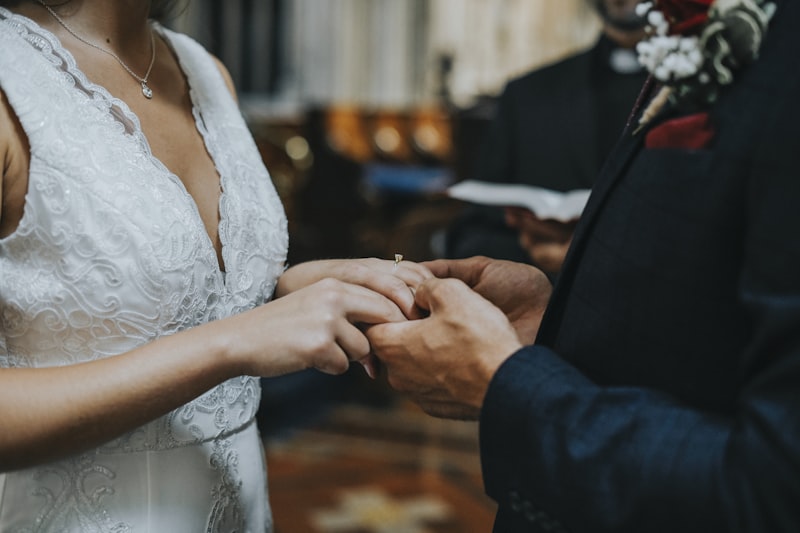Understanding Wedding Vendor Contracts: A Comprehensive Guide
Understanding Wedding Vendor Contracts: A Comprehensive Guide
Introduction to Wedding Vendor Contracts
Planning a wedding can be an exhilarating yet challenging experience. One of the most crucial aspects of this process is understanding wedding vendor contracts. These legal agreements lay the groundwork for your relationship with vendors, including caterers, photographers, florists, and more. Familiarizing yourself with these contracts is essential to ensure your special day goes off without a hitch.
What is a Wedding Vendor Contract?
A wedding vendor contract is a legal document that outlines the services provided by a vendor, the costs associated with those services, and the terms of the agreement. These contracts are meant to protect both you and the vendor, ensuring that all parties understand their obligations and expectations.
Key Elements of Wedding Vendor Contracts
Understanding what to look for in a wedding vendor contract can save you from potential pitfalls later on. Here are the key elements to consider:
| Element | Description |
| Service Details | A clear description of the services the vendor will provide. |
| Payment Terms | The total cost, deposit requirements, and payment schedule. |
| Cancellation Policy | Terms under which either party can cancel the agreement. |
| Liabilities and Responsibilities | Who holds liability in case of issues or damages. |
| Communication Process | How and when you will communicate with the vendor. |
Why Understanding Vendor Contracts is Important
Grasping the details in wedding vendor contracts is key for several reasons:
- Prevention of Misunderstandings: Clear contracts help to avoid any ambiguities regarding what services are included.
- Financial Protection: Knowing the payment terms prevents unexpected costs and helps you stay within your budget.
- Legal Safeguards: A well-drafted contract protects your rights and serves as a reference point if disputes arise.
- Peace of Mind: Understanding the agreement can help alleviate some stress during your wedding planning process.
How to Read Your Wedding Vendor Contract
When you receive a vendor contract, take the time to read it carefully. Here are some steps to help you through the process:
- Read the Entire Document: Don’t skip over sections just because they seem less important.
- Highlight Critical Sections: Make notes or highlight areas that you need clarification on.
- Ask Questions: Don’t hesitate to reach out to the vendor to clarify anything you don’t understand.
- Consult a Legal Expert: If necessary, consider hiring a legal expert to review the contract.

Common Questions About Wedding Vendor Contracts
Understanding wedding vendor contracts can lead to many questions. Here are some frequently asked questions that can provide further insight:
1. What happens if a vendor cancels?
This can vary from contract to contract. Most agreements will outline the circumstances under which a vendor can cancel and what the compensation will be, if any.
2. Am I allowed to make changes to the contract?
Yes, you can request changes to the contract. It's crucial to have any alterations documented and signed by both parties.
3. What if there’s a dispute about the services provided?
The contract should have a clause on how disputes will be resolved, whether through mediation or legal action.
4. Are deposits refundable?
It depends on the contract's cancellation policy. Many vendors retain a portion of the deposit as compensation for reserving the date.
Understanding Specific Vendor Contracts
Different types of vendors may have unique elements in their contracts. Below are key considerations for specific vendor contracts:
Photographers
Photography contracts usually specify the number of hours, the number of images, and post-wedding services like photo albums. It's essential to ensure these points are outlined clearly to avoid misunderstandings later.
Caterers
Catering contracts should detail menu selections, serving styles, and guest count guarantees. They may also include cancellation clauses and policies about last-minute changes to the guest list.
Florists
A florist's contract might detail the types of arrangements and delivery times. It's wise to confirm your expectations on flower types and colors in the agreement.
Tips for Navigating Wedding Vendor Contracts
Here are some proactive tips to consider when dealing with wedding vendor contracts:
- Get Everything in Writing: Verbal agreements can lead to disputes; always have important details documented.
- Don't Rush: Take your time reviewing contracts; rushing can lead to mistakes or overlooked details.
- Communicate Openly: Maintain clear lines of communication with all vendors to ensure complete transparency.
- Research Vendors: Prioritize working with reputable vendors who are experienced and well-reviewed.
Conclusion
Understanding wedding vendor contracts is an essential part of planning your special day. By carefully reviewing the terms, asking the right questions, and ensuring clear communication with your vendors, you can secure a worry-free wedding experience. Remember to consider the unique terms of each vendor's contract and always get everything in writing. By doing so, you can protect yourself and enjoy your wedding day without the stress of unexpected complications.
Happy planning, and may your wedding day be everything you envisioned!
